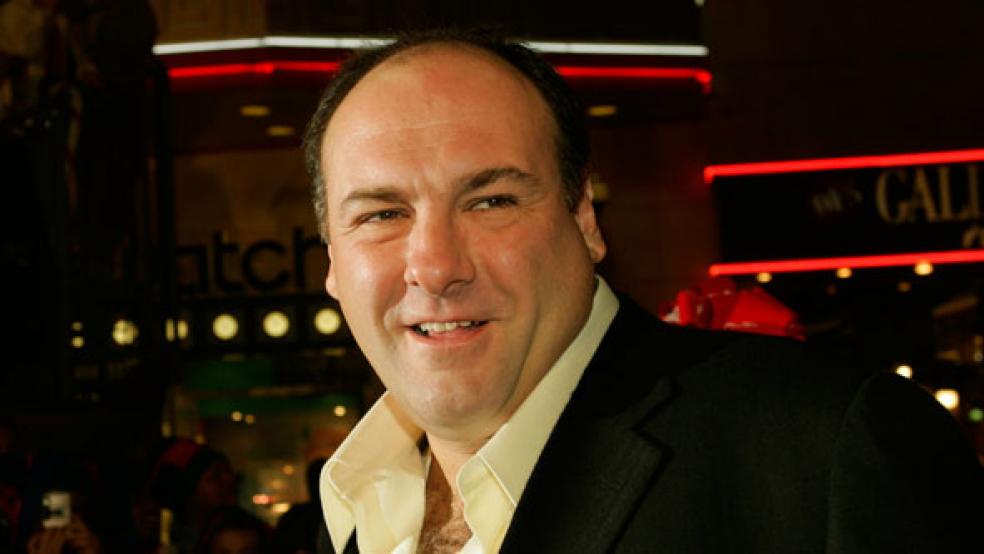That the late James Gandolfini was a beloved actor is without question. Now that his will has been revealed, he has a new fan: The IRS.
Gandolfini's will was written in a way that estate planning experts say skipped many options for minimizing his tax bill.
One example: Gandolfini left just under 20 percent of his assets to his wife, with the rest going to his sisters and infant daughter. (He made "other provisions" for his son from a previous marriage, the will says.) With less than 20 percent of the assets covered by Gandolfini's will going to his wife, close to 80 percent could be subject to state and federal taxes that together can reach a rate of 55 percent.
Certainly, Gandolfini may have had priorities other than taxes, like wanting to make sure his son would not be dependent on his stepmother for his inheritance.
"I very often have clients that make very well informed decisions that might not be the most tax efficient," said Mickey Davis, a partner at Davis Willms.
Gandolfini may also have had assets like retirement accounts and life insurance policies that are not covered by the will and its tax rules.
RELATED: I FELL IN LOVE WITH GANDOLFINI... AND SPENT IT ALL ON HBOBut legal and tax experts say that if minimizing taxes was a priority, Gandolfini's will could have been better written.
"You don't know what was explained to him and you don't know what his choices were," said Christina Mason, a partner at Kelley Drye & Warren. "Probably three-quarters of people approach it in the most tax efficient way, but the others don't." From what's been revealed about his estate, Gandolfini seems to have been in the latter camp, she added. "On the face of it, it looks as though it's very tax inefficient."
So how can you be smarter than James Gandolfini when it comes to estate planning?
For starters, consider taking greater advantage of the marital deduction. This tax deduction allows a spouse to transfer an unlimited amount of assets to their surviving spouse, and deduct it from the amount subject to estate tax.
Trusts are another tool for managing sizable estates. Gandolfini "could have made some significant gifts to his siblings and to his daughter and put them in trust and told the trustee 'don't distribute these until I'm gone, but grow these during my lifetime,'" Davis said. "Once he's put them in trust, the assets would avoid the estate taxes."
Still, trust assets have to have time to grow, and Gandolfini died at age 51. To make sure trusts have value at any time, Davis says Gandolfini could have created trusts and had the trustees take out life insurance on him. That way, the insurance would have provided for his heirs even if the trusts themselves were still small.
Another issue with Gandolfini's will is the plan to leave assets for his infant daughter that become hers free and clear when she turns 21.
"Our recommendation is typically to put it in trust until 25, because that gets the kids through college," Mason said. "Even if they're completely spendthrift, at least they've gotten a college education paid for."
Davis says older may be even better. His younger clients, he says, often opt to have children come into half of their assets at age 25 and half at 30. "Often later they come back to us and say 35 and 40."
Then there is the matter of real estate. Gandolfini owned a home in Italy, and in his will he give each child a 50 percent stake. But there is no mention of how to pay for upkeep——and there seems to be no reference to Italian laws that would come into play. For example, in some European countries there are laws governing who inherits real estate.
"If you've got a client with a house in Italy or a flat in London, they need to be talking to local counsel," Davis said.
In the end, no one in Gandolfini's family is likely to come up short. But paying lower taxes would have left them even better off.
This article originally appeared at CNBC.com
Related:
Actor James Gandolfini, Star of 'The Sopranos,' Dies in Italy
Retirement Planning Can Help High Earners Avoid Big Tax Hit
Yours, Hers, and the Kids': Estate Planning After Remarrying


